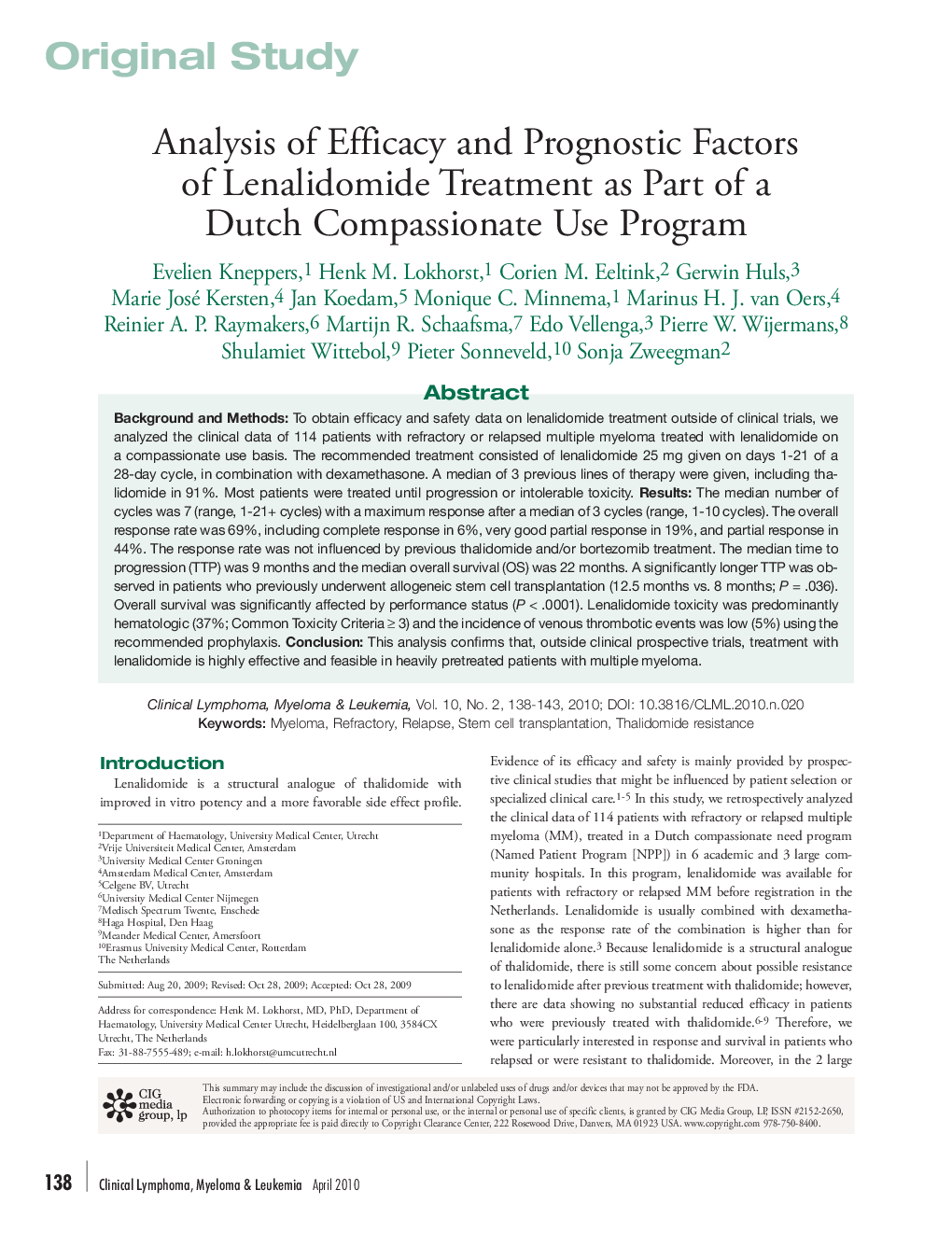| Article ID | Journal | Published Year | Pages | File Type |
|---|---|---|---|---|
| 2755422 | Clinical Lymphoma Myeloma and Leukemia | 2010 | 6 Pages |
Background and Methods:To obtain efficacy and safety data on lenalidomide treatment outside of clinical trials, we analyzed the clinical data of 114 patients with refractory or relapsed multiple myeloma treated with lenalidomide on a compassionate use basis. The recommended treatment consisted of lenalidomide 25 mg given on days 1-21 of a 28-day cycle, in combination with dexamethasone. A median of 3 previous lines of therapy were given, including thalidomide in 91%. Most patients were treated until progression or intolerable toxicity.Results:The median number of cycles was 7 (range, 1-21+ cycles) with a maximum response after a median of 3 cycles (range, 1-10 cycles). The overall response rate was 69%, including complete response in 6%, very good partial response in 19%, and partial response in 44%. The response rate was not influenced by previous thalidomide and/or bortezomib treatment. The median time to progression (TTP) was 9 months and the median overall survival (OS) was 22 months. A significantly longer TTP was observed in patients who previously underwent allogeneic stem cell transplantation (12.5 months vs. 8 months; P = .036). Overall survival was significantly affected by performance status (P < .0001). Lenalidomide toxicity was predominantly hematologic (37%; Common Toxicity Criteria ≥ 3) and the incidence of venous thrombotic events was low (5%) using the recommended prophylaxis.Conclusion:This analysis confirms that, outside clinical prospective trials, treatment with lenalidomide is highly effective and feasible in heavily pretreated patients with multiple myeloma.
